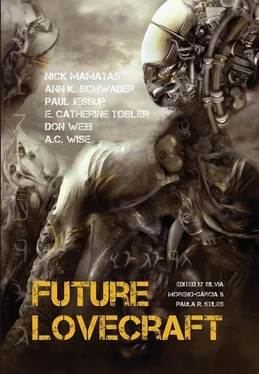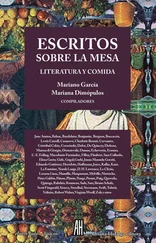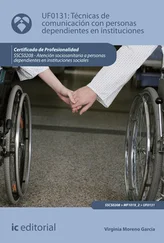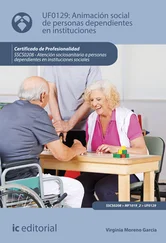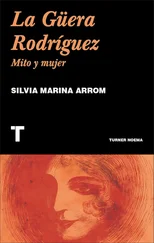Tamsin and I still think about leaving. But others are joining us here, people like us, couples, families, those with few options. Soon, the town will be a real town. It will have more shops and, eventually, a school and its own police station. But time still overlaps. Once, I heard the clop-clop of a large horse behind me. I turned to see nothing. And some nights, I swear there’s a carriage driving right past our bedroom window. And I’m sure I saw something hovering one night, all still and silvery, right above our roof, only to veer off sharply, disappearing in an instant into the dark sky. Who knows what will come next? In this damaged part of the world, we walk lightly.
VENICE BURNING
By A.C. Wise
A.C. Wise was born and raised in Montreal, and currently lives in the Philadelphia area. Her stories have appeared in publications such as Clarkesworld, Daily Science Fiction and Strange Horizons, among others. She is co-editor of the online ‘zine , The Journal of Unlikely Entomology. She can be found online at www.acwise.net.
A FLOATING CITY, a sinking city, a drowned city; there isn’t much difference, really. When R’lyeh rose, it rose everywhere, everywhen . Threads spiral out, down, in, stitching past to present to future.
There are ways to walk between, not particularly hidden, if you’re willing to lose a part of yourself. Most people aren’t; it’s my specialty.
I stand on a pier, eyes shaded against the water’s glare. It’s 2015, by the smell—diesel and cooked meat, early enough that such things still exist—and the particular pale-jade of the canal. It might as well be 2017, or 3051. But this year is where my client is, so I wait, sweating inside a black, leather jacket, watching slick weeds stir below lapping waves.
The sun burns white-hot. Across the water, atop a basilica whose name no longer matters, Mary stretches marble arms over a maze of twisted streets. Legend claims that, when the basilica was built, the statue turned miraculously toward the water to guard the boats in the canal. The day R’lyeh rose, she turned her back on the water forever and wept tears—sticky and ruby-dark—that weren’t quite blood.
A hand touches my arm, nails perfectly manicured and painted sea-shell pink. I’m surprised the Senator came herself. A frightened mother looking for her lost son is one thing; a politician desperate to protect her career is another. I wonder: Does the Senator know which she is?
Sunlight catches the diamond net of hairspray holding every blonde strand in place. Her lips press thin, leaving unkind wrinkles at the corners of her mouth, marring otherwise-perfect skin. Nails, lips and suit all match; only the Senator’s eyes betray her.
From her perspective, it’s just beginning. R’lyeh is a shadow beneath the waves and there is still hope. But I’ve seen tendrils slide through the canals of the city, sinuous, licking the stones and tasting the ancient walls. They want nothing. The Senator still thinks she can bargain with the Risen Ones, strike a deal and become a new Moses to her people.
I focus on the Senator’s nails, striking against my black leather. I know this about her: Her life will end in a church, green water rising between the pews, light reflecting against the ceiling in shifting patterns. She will die screaming, bound hand and foot, while her blood is pulled through her skin by sheer force of will.
I don’t offer to shake her hand. “Do you have a photo of your son?”
The slim case tucked beneath her arm matches nails, lips and suit. She hands me a glossy, professional-looking headshot. Her son looks nothing like her. Mr. Senator is an actor, younger than the Senator by at least ten years, dark of hair and eye like his son, but prettier by far.
Marco, the son, gazes back at me from the photograph. Slick-oiled hair hangs to the collar of a leather jacket, an open-necked white shirt beneath it. He has deep-brown eyes and the faintest of scars—acne, despite the medicine and the cosmetic surgery his parents could easily afford. I hide the edge of a smile at Marco’s tiny act of rebellion.
“You understand this is a matter that requires the utmost discretion.” The Senator holds out an envelope. She tries for frost, the same control she displays on the Senate floor, but her voice fails.
“I’ll be in touch,” I say, looking at a point beyond the Senator’s left shoulder.
A subtle tugging wraps threads around my spine. I’m amazed at the Senator’s self-control, her talent for denial. How can she not feel what the world has become? How can she resist the temptation to slip into the future? She has the perfect pretense—looking for her son. She could see how it all ends.
I pocket the envelope and Marco’s photo, and step past the Senator. Her mouth opens, snaps audibly closed; she isn’t used to being dismissed. My bootheels click as I walk away, thinking about her son.
A family vacation in a city of masks and illusory streets—the perfect place to hide, the perfect place to disappear. Twenty-six and vanished—of course Marco doesn’t want to be found. Even photographed, the desire to run shines clear in Marco’s eyes. Desperation and fear, they bring a flicker of memory, which I push aside. There is no place far enough, but he’ll still try, fleeing forward to test the notion that the future is infinite.
I know where to start—Harry’s Bar. I step forward, and slide cross-wise, surrendering to shattered light, burning stars and the aching space between. Tentacles as insubstantial as breath slide beneath my skin. They want nothing, but they take what I have to give. Cold, cold, cold, they grip my spine, caress my skull, and scoop out the heart of me.
If they were beings to be reasoned with, I would ask them to take everything. It doesn’t work that way.
Firelight flickers. My scars itch, stretching tight across my back. I hold the memories up as an offering, but the tentacles find their own prize. I don’t know what they take from me; I only feel the familiar, hollow ache when it’s gone.
It’s 2071 when I enter the bar. The light is green, but the waiters still wear immaculate white jackets and ties, a terrible joke. I slide into a seat.
“A double.” I don’t specify of what, but it hardly matters.
Behind the bar, where mirrored shelves used to hold bottles of liquor, pendulous nets hold a jumble of perpetually dripping starfish, conch shells, mussels, and clams. Breathing, wavering things cling to the wall. Occasionally, the waiters pause, offering their fingers, as if feeding choice morsels to a favourite pet. Fragments of shadow stretch in tacky strands, linking the waiters’ hands to the creatures on the wall as they draw away. The air smells of brine. Things at the corner of my eye shift, skirl, unfold impossible dimensions, and retreat—deep-sea anemones shy of the light.
The bartender slides a drink in front of me. Misery haunts his gaze. This is our life now, our life then—this is the life to come. His mouth doesn’t move when he breathes. His nostrils don’t stir. If I didn’t know to look, I wouldn’t see the gills slitting his throat above his starched collar, nictating almost imperceptibly. His eyes bulge, moist, blood-shot. I place a bill on the bar and add a stack of silver-gold coins, a generous tip.
I wait a moment, then place Marco’s picture next to the coins. The bartender’s skin sweats oil and sorrow. People determined to vanish come to Harry’s Bar and, for the right price, the miserable waiters in their starched, white uniforms show them how.
“When?” I ask.
“Can’t say.” The bartender’s voice is frog-hoarse.
I know he means ‘can’t’, not ‘won’t’. Everything can be bought and sold here: sugar-sweet cubes that melt on the tongue and bring oblivion; death; pleasure; escape; even answers. The man behind the bar taught Marco how to leave, but didn’t ask questions—a good bartender to the last.
Читать дальше
